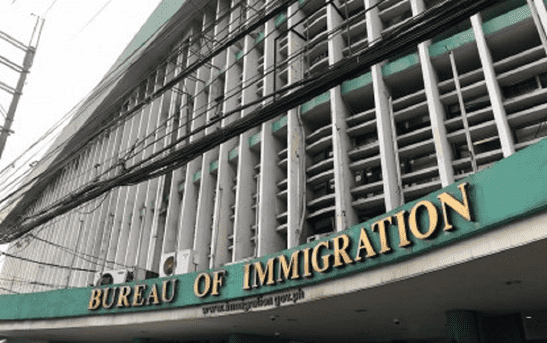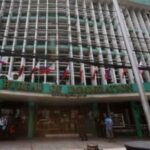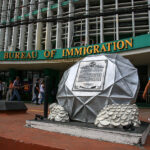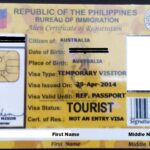The Philippines is known for its vibrant culture, warm communities, and a tropical climate that draws expats from around the world. As more foreign nationals relocate for work, retirement, family, or adventure, understanding how to legally reside, integrate, and make the most of expat life in the Philippines is critical.
Understanding Expat Life in the Philippines
Moving to the Philippines is about more than just settling into a new home; it’s a unique journey shaped by the archipelago’s customs, economic realities, and regulatory environment. Expats are welcomed for their skills and investment but must adapt to local practices, from warm hospitality to bustling urban life or tranquil provincial living. Whether relocating for work, business, or retirement, every expat should navigate the basics of Philippine society, government protocols, and daily life to enjoy a smooth transition.
Entry Requirements and Visa Options for Expats
Choosing the right visa is the foundation for legal residence and a stress-free stay. Options include:
- Tourist Visas: For short-term visits, most nationalities can enter visa-free for up to 30 days, with extensions of up to 36 months available for compliant “forever tourists.”
- Work Visas (9G): Necessary for employment; requires a job offer and an Alien Employment Permit (AEP) from the Department of Labor and Employment.
- Special Retiree’s Resident Visa (SRRV): For retirees aged 50+, with required deposits or pension income, offering an indefinite stay.
- Marriage Visa (13A Non-Quota Immigrant Visa): For foreign spouses of Filipino citizens, leading to permanent residency.
- Special Investor’s Resident Visa (SIRV): Available for investors committing at least USD 75,000 to BOI-approved ventures.
- Special Work Permit (SWP) and Provisional Work Permit (PWP): For project-based or short-term work.
- Digital Nomad Visa (starting June 2025): Enables remote foreign workers to stay up to two years while working for non-Philippine entities.
Understanding each visa type, its application steps, and renewal requirements is vital for compliance and long-term security as an expat.
Housing and Accommodation
Finding the right accommodation depends on your lifestyle, budget, and length of stay:
- Buying vs. Renting: Foreigners may buy condominiums but not land. Long-term leases (up to 50 years) are common for residential properties, such as houses.
- Rental Market: Expect competitive markets in cities like Manila or Cebu. A one-bedroom in the city center averages around USD 400–600/month.
- Utilities: Not always included in rent; budget about USD 80–120/month for electricity, water, and internet.
Tip: Use trusted agents, browse listings online, and always double-check contracts.
Employment and Setting Up a Business
If you’re looking to work or set up a company in the Philippines, here are the things you need to know:
- Working as an Expat: Securing the correct work visa is just the beginning. Some roles (corporate officers, certain professionals) have streamlined processes for work permits, but most require an AEP and a 9G visa.
- Entrepreneurship: Foreigners can own businesses, often with up to 40% equity or 100% ownership in export-based companies or specific sectors. Some visas (SIRV, SVEG) require minimum investment or staff employment thresholds.
- Taxes: Both residents and non-residents are taxed on Philippine-sourced income. Employ a good accountant familiar with expatriate taxation.
Banking and Financial Matters
Expats can open local bank accounts with a valid ID, a visa, and a local address. Many foreigners also maintain overseas accounts and use international banking apps for ease. Major banks include BPI, BDO, Metrobank, and both peso and USD accounts are available. Always keep clear tax and banking records for immigration and compliance.
Healthcare, Insurance, and Emergency Services
If you are worried about your health, the Philippines offers the following for expats:
- Medical Infrastructure: Major cities typically offer modern facilities, whereas rural healthcare can be more basic.
- Insurance: International health insurance is strongly recommended; local plans are also available.
- Vaccinations: Standard immunizations and travel vaccines (like hepatitis, typhoid, and Japanese encephalitis) are advisable.
Cost of Living
Here are the things you need to expect for costing:
- Shopping & Food: Groceries are affordable, and eating out can cost USD 2–10 per meal. International supermarkets are widely available in cities.
- Transportation: Jeepneys, buses, taxis, and ride-hailing apps (e.g., Grab) are common. Car purchases are possible, but driving can be challenging due to traffic.
- Education: International schools are excellent but costly, ranging from USD 2,000 to USD 10,000+ per year.
Community, Social Life, and Integration
Navigating the Philippines as an expat is easy because it is an English-speaking country and hospitality is on top:
- Language: English is widely spoken, easing daily interactions and official business. Learning a few Tagalog or local words helps ease cultural integration.
- Cultural Customs: Filipinos are friendly but value respect and social harmony. Practice patience, adapt to flexible schedules (“Filipino time”), and join local gatherings for deeper community ties.
- Expat Networks: Manila, Cebu, and other urban centers host numerous international associations, clubs, and online forums, providing advice, support, and social opportunities.
Driving, Transportation, and Mobility
If you are worried about how to get from point A to point B, here are the transportation options in the Philippines:
- Driving License: An international license is valid for 90 days; after that, convert to a Philippine driver’s license at the Land Transportation Office (LTO).
- Traffic: Congestion is common in cities. Public transportation is cost-effective but crowded during peak hours.
- Private Vehicles: Expats can purchase and insure vehicles locally; compulsory third-party liability insurance is mandated.
Key Tips for a Smooth Expat Life
- Stay Legal: Always maintain visa compliance; overstays entail fines and deportation.
- Plan Finances: Keep emergency funds and ensure proper tax compliance.
- Embrace Local Culture: Patience, humor, and respect go a long way.
- Keep Secure: While the Philippines is generally safe, exercise caution in crowded places and follow local news for updates.
- Network Early: Building a strong social and professional network accelerates adaptation and boosts opportunities.
Common Challenges and How to Overcome Them
- Bureaucracy: Expect paperwork for visas, permits, and renewals—professional assistance saves time.
- Infrastructure: Power outages and internet issues can occur; always have a backup plan for remote work.
- Cultural Adjustment: Accept differences in timekeeping and administrative speed as part of the expat journey.
Final Thoughts
Living as an expat in the Philippines can be deeply rewarding with the right preparation, an open mind, and support. The country welcomes foreign nationals for work, study, retirement, and adventure, but emphasizes regulatory compliance at every stage. Focusing on legal status, community integration, and practical daily life ensures a smooth, enjoyable transition for expats and their families.
Need Expert Support for Your Move to the Philippines?
Work Visa Philippines offers tailored assistance for expats relocating for work, retirement, or family. Our team handles all aspects of visa applications, renewals, and compliance—including business formation and long-term residency—helping you confidently settle and thrive in your new home in the Philippines. Contact us today for a consultation:
- Contact Us Here
- Fill Out the Form Below
- Call us at +63 (02) 8540-9623





